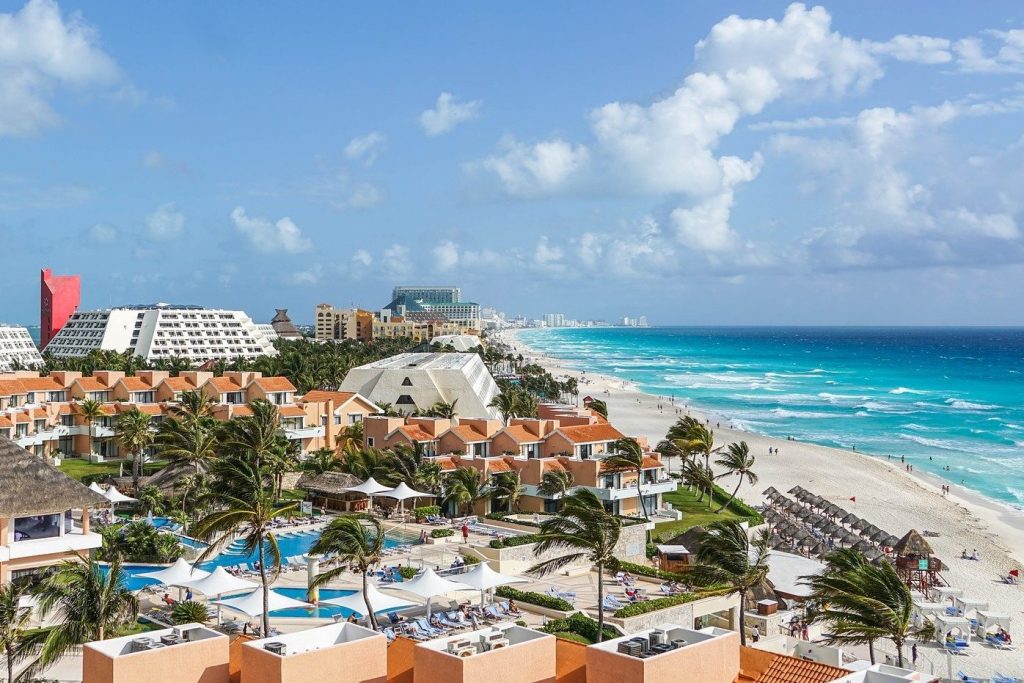Hotel Brands Want to Be in Mexico But Investors Look Elsewhere

Skift Take
Mexico, with more than half its hotel stock marked as independent, should be a hunting ground ripe for major brands to swoop in and make deals.
While international tourist arrivals dropped 74 percent last year around the world, they were down a more modest — albeit still extreme — 46 percent in Mexico, according to JLL. This largely stems from Mexico’s open borders to travelers arriving by air.
No matter the hotel company, they’ve all spent the better part of the last year touting the benefits of brand affiliation coming out of the pandemic and laying out a strategy for wooing independent hotel owners. A bigger brand’s name recognition, loyalty program, and global distribution platform would help a property quickly get back to pre-pandemic performance, the thinking goes.
But real estate experts note wooing investors isn’t as easy as showing strong market fundamentals during the crisis.
“Brands definitely want to be here,” said Carolina Lacerda, JLL’s senior vice president of investment sales for Latin America and country director for the firm’s Mexico division. “Investors are a little bit trickier. It’s a global pandemic, so there are opportunities everywhere.”
Major hotel companies like Marriott, Hilton, and Wyndham all see markets outside the U.S. as growth opportunities for each of their many brands. Most of the global companies target independent hotels as ways to quickly grow, as they negotiate with owners of these properties to take on a brand affiliation, a deal known as a conversion.
Only a little more than 28 percent of the hotels in the U.S. are independent, but nearly 64 percent of the European hotel supply has no brand affiliation, according to JLL. A little more than 58 percent of the German lodging supply is independent while it’s just over 44 percent in France and nearly 46 percent in the UK.
The Caribbean and Mexico region’s overall hotel market is roughly 51 percent independent. The relative strength of Mexico’s lodging sector during the pandemic is certainly appealing to hotel companies. JLL notes a pick-up in owner interest about taking on a brand affiliation in Mexico due to the familiarity it provides to customers.
“Owners don't want to make a mistake and be in another pandemic and have a white elephant because they didn't do the right homework,” said Geraldine Guichardo, global head of research at JLL's Hotels & Hospitality group. There’s definitely a lot more research and advisory going on into new projects.”
Mexican resort markets like Los Cabos, Cancun, and Riviera Maya fared better than most markets across the Americas. Revenue per available room — the industry’s key performance metric — dropped 29 percent in Los Cabos last year compared to a 40 percent decline in Miami, one of the best-performing U.S. markets through the crisis.
Cancun and Riviera Maya, which saw declines of 48 percent and 51 percent, respectively, outperformed destinations like Orlando and San Juan, Puerto Rico.
There's growing expectation accelerated vaccine distribution in the U.S. will lead to even more demand for hotels in Mexico's top resort destinations, despite the U.S. adding its southern neighbor — and at least 116 other countries — to a "Do Not Travel" list earlier this month due to the pandemic.
But investors are scouting the world for troubled assets with lower valuations to park capital.
“The investor that was looking at Mexico before is now not only looking at Mexico,” Lacerda said. “They are now looking at Europe or the U.S.”
The relative strength in these Mexican resort markets means owners are less likely to sell. Instead, properties that do tend to hit the market are found more in urban areas that are dealing with higher active case counts than more popular resort destinations.
“The challenge in Mexico is that everyone thought last year all these opportunities were going to happen in vacation destinations. They thought that people are going to go bankrupt and sell these hotels at a discounted price,” Lacerda said. “But it's not happening because the hotels are performing really well. There's no discount happening.”
The investor climate of plenty of capital waiting in the wings but limited supply isn’t unique to Mexico. To the north in the U.S. and around the world, there hasn’t been a crashing wave of hotel transactions during the pandemic despite high rates of loan delinquencies.
But there is a growing sense opportunity is just around the corner in U.S. urban markets as well as cities in Europe, typically areas more difficult to enter due to the high costs. Various levels of government support as well as lender flexibility with mortgages kept properties from changing hands, but relief and forbearance are likely to dry up this year.
Roughly $27 billion in U.S. hotel lodging debt is set to mature by the end of the year, which will likely push owners of still-struggling hotels to sell. A variety of hotel investment funds launched in the last year, and many investors are waiting to swoop in.
“The urban assets that rely heavily on international demand and corporate demand will struggle to continue holding on and so, couple that with higher fixed costs, when the distress comes, we definitely anticipate it will be in those urban markets,” Guichardo said.




